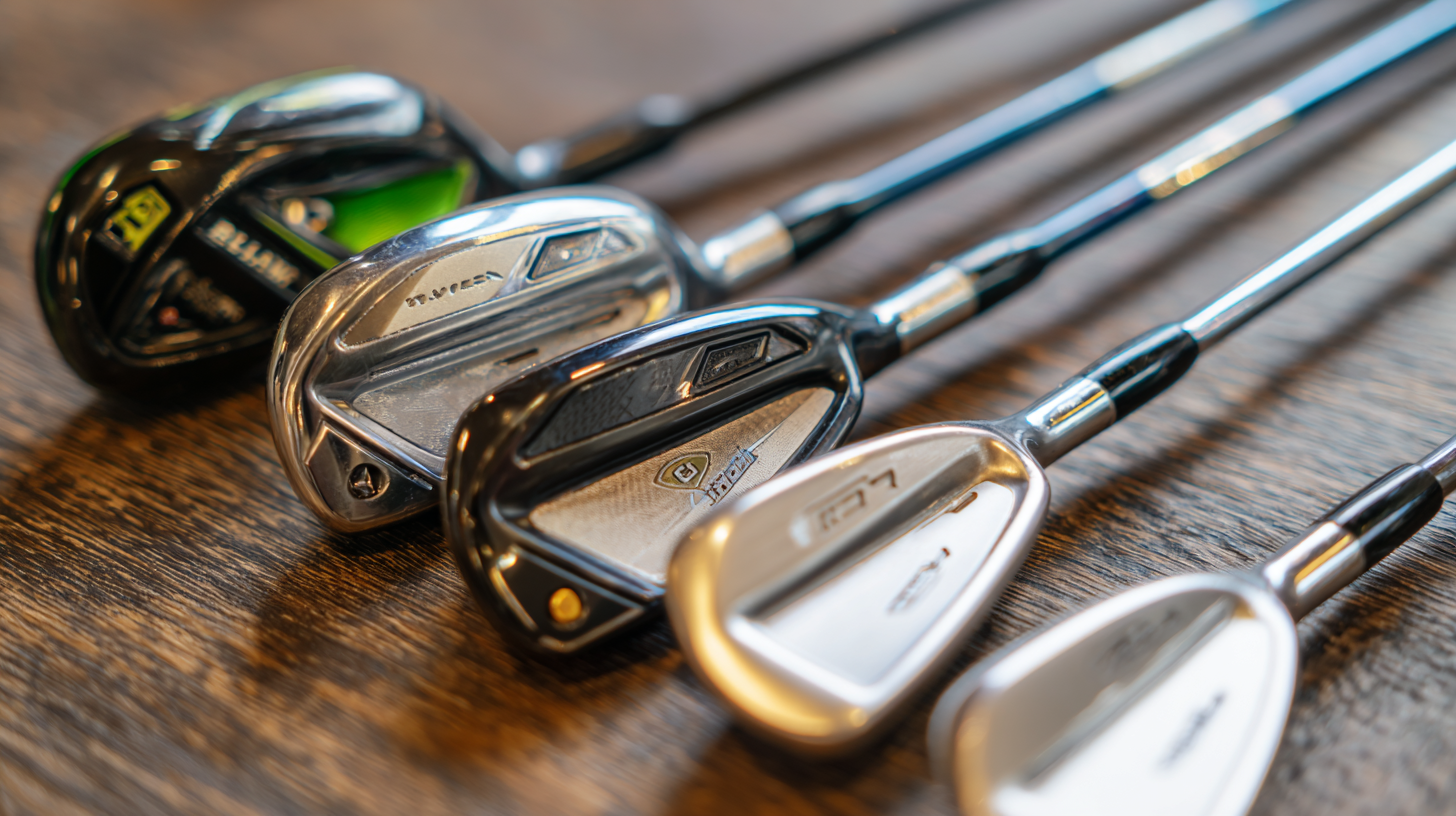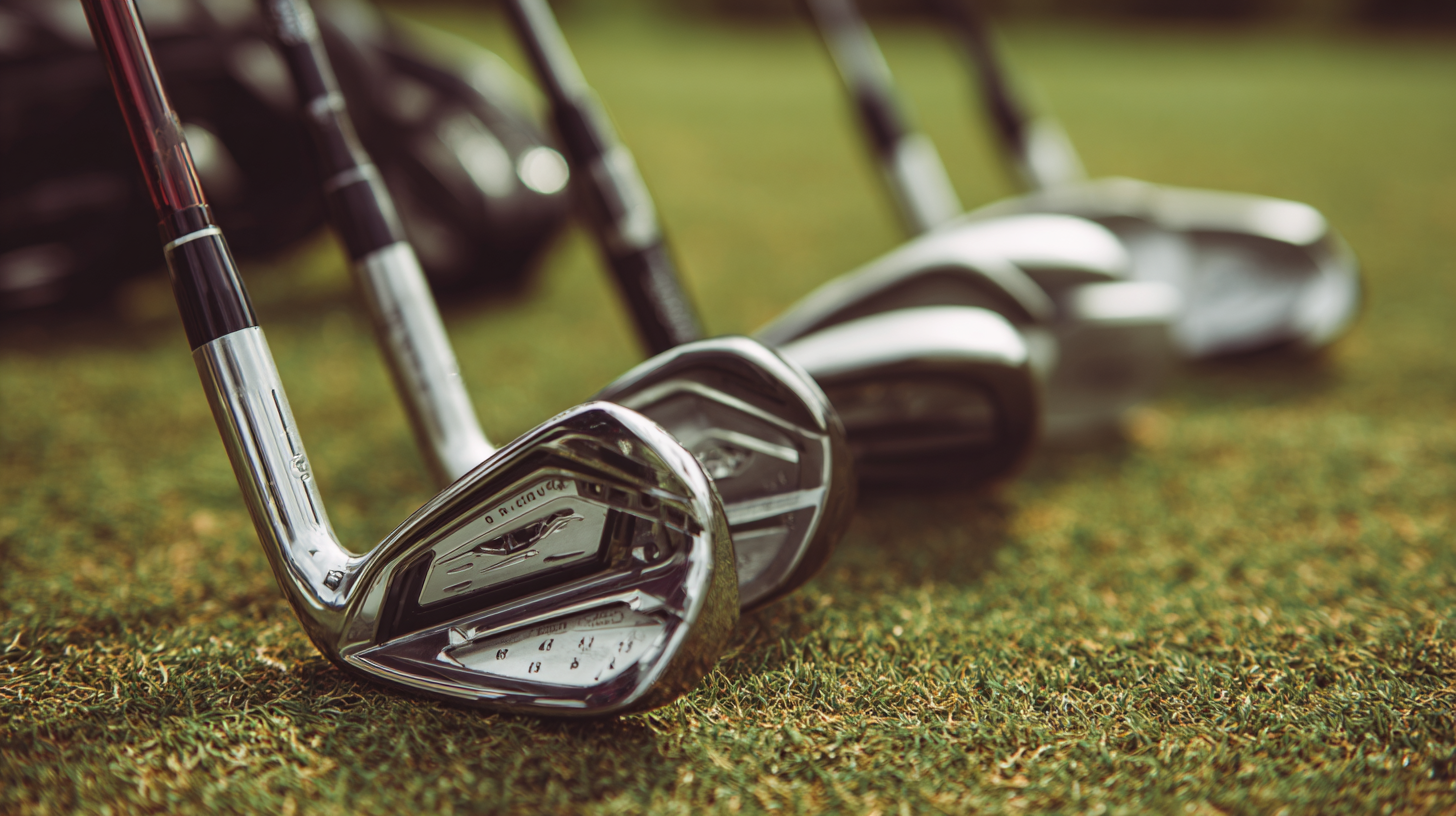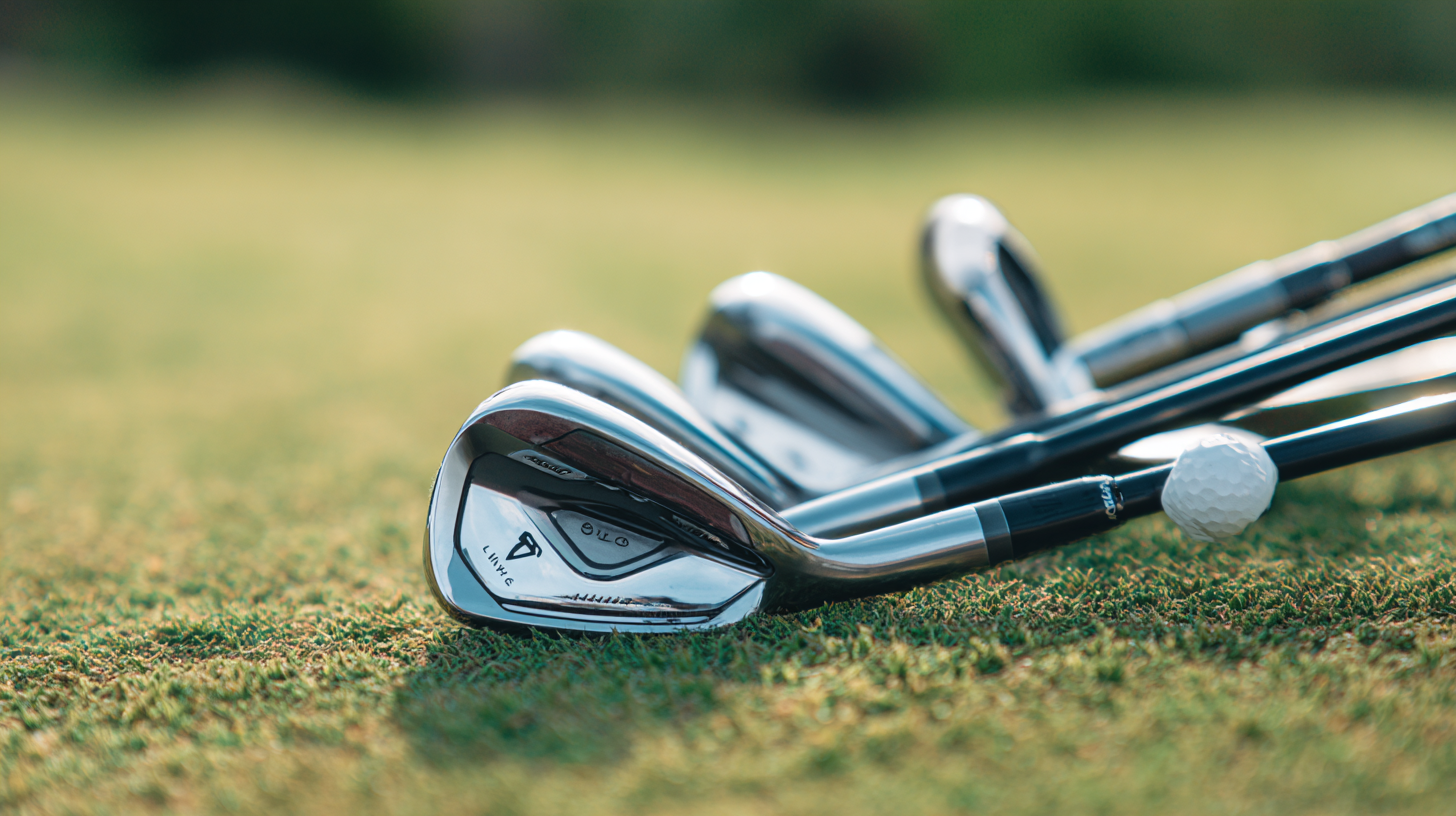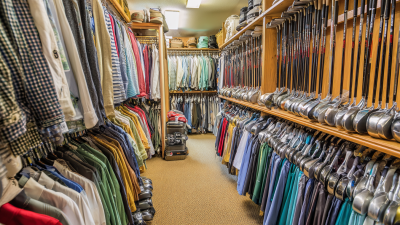Unlocking Your Golf Potential: A Comprehensive Guide to the Best Golf Clubs for Every Skill Level
In the realm of golf, selecting the right equipment can significantly impact your performance on the course. According to a recent report from the National Golf Foundation, approximately 60% of golfers feel that their choice of clubs directly affects their game, leading them to seek the best golf clubs tailored to their skill level. With an ever-expanding market and a plethora of options available, understanding the nuances of club selection is crucial. Whether you are a beginner looking to improve your swing or an experienced player aiming to fine-tune your game, the right clubs can mean the difference between frustration and success. This guide aims to demystify the process and provide insights into the best golf clubs suitable for every skill level, empowering players to unlock their full potential on the greens.

Understanding the Basics: Choosing Your First Set of Golf Clubs
 Choosing your first set of golf clubs can be an exciting yet daunting task. As a beginner, the key is to understand the basic types of clubs and their purposes. Golf clubs are categorized into three main types: woods, irons, and putters. Woods are ideal for long-distance shots, while irons are better suited for approach shots and shorter distances. The putter, on the other hand, is used on the green to roll the ball into the hole. Starting with a mix of these clubs will provide you with versatility on the course.
Choosing your first set of golf clubs can be an exciting yet daunting task. As a beginner, the key is to understand the basic types of clubs and their purposes. Golf clubs are categorized into three main types: woods, irons, and putters. Woods are ideal for long-distance shots, while irons are better suited for approach shots and shorter distances. The putter, on the other hand, is used on the green to roll the ball into the hole. Starting with a mix of these clubs will provide you with versatility on the course.
When selecting your first set, consider the materials and feel of the clubs. Beginner-friendly clubs are often made from lightweight materials, making them easier to handle. Look for sets that come with a bag, as this will help you organize your clubs and transport them to the course. Additionally, consider visiting a local golf shop to test out different clubs. This will give you a feel for what suits your swing and style.
Remember, investing in a good-quality set of clubs tailored to your skill level can greatly enhance your learning experience and enjoyment of the game.
Evaluating Golf Club Options for Beginners: Key Features to Consider
When it comes to choosing golf clubs, beginners should prioritize several key features that can significantly affect their performance on the course. First and foremost, weight and length are crucial factors. Lighter clubs are generally easier to swing and control, helping new players develop their technique without being overwhelmed. Additionally, shorter clubs can aid in better ball contact for those just starting, enhancing the overall experience and encouraging consistent practice.

Another important consideration is the clubhead design. Many beginners benefit from using oversized clubheads, which offer a larger sweet spot. This design aids in forgiveness on off-center hits, allowing new golfers to still achieve respectable distance and accuracy even when their swing isn’t perfect. Additionally, adjustable clubs that allow for personalization can cater to individual swing styles as beginners evolve. Ultimately, by focusing on these key features—weight, length, and clubhead design—beginning golfers can find suitable clubs that will help them enjoy and improve their game.
Intermediate Golfers: Selecting Clubs to Enhance Your Skills
For intermediate golfers looking to enhance their skills, selecting the right clubs is crucial to elevate your game. At this stage, players typically have a grasp of their swing mechanics and are ready to refine their technique. A well-fitted set of clubs can significantly influence performance, helping to improve accuracy and distance. It's essential to consider factors such as club length, shaft flex, and grip size to find the perfect match for your playing style.
When choosing clubs, focus on versatility. A mid-range set that includes a mix of perimeter-weighted irons and forgiving hybrids can help you tackle various course conditions. Equipment like a slightly lighter driver with enhanced forgiveness will assist in achieving greater distance without sacrificing control. Additionally, investing in a quality putter that suits your feel can yield improved short-game performance. Ultimately, the right clubs not only support skill development but also boost confidence on the course, allowing intermediate golfers to unlock their full potential.
Advanced Players: Fine-Tuning Your Game with Specialized Equipment
Advanced golfers understand that mastering the game often requires fine-tuning their equipment to suit their unique playing style and skill set. Specialized clubs can dramatically enhance precision and control, allowing experienced players to execute more complex shots with confidence. For instance, players with a strong swing might benefit from low-launch drivers designed to maximize distance while maintaining accuracy. Similarly, tailored irons, such as those with a smaller clubhead or varied offset, can provide the feedback and feel necessary for sharper shot-making.
Additionally, advanced players should consider the importance of custom fitting. Using launch monitors and swing analysis tools, golfers can receive insights on their swing mechanics and ball flight, which helps them select clubs with the right specifications. For example, the correct shaft flex, length, and swing weight can lead to significant improvements in performance. Performance-enhancing technologies in wedges and putters, such as enhanced grooves or milled faces, can offer better spin control and precision on the green, ultimately refining every aspect of their game.
Unlocking Your Golf Potential: Advanced Players' Equipment Comparison
Maintaining Your Golf Clubs: Tips for Longevity and Performance Optimization
Maintaining your golf clubs is essential for ensuring optimal performance and longevity. Regular upkeep not only enhances your game but also extends the life of your equipment. One of the simplest yet most effective tips for maintaining your golf clubs is to clean them after every use. This involves wiping down the club heads with a damp cloth to remove dirt and grass, which can negatively affect your swing and ball contact.
Another important aspect of club maintenance is inspecting your grips. Over time, grips can wear out, becoming slick and uncomfortable. Ensure that you regularly assess their condition and replace them as needed to maintain control during your swing. Additionally, keep your clubs dry and store them in a cool, dry place to prevent rust and other damage. A little regular care can go a long way in keeping your clubs in peak condition.
Lastly, consider scheduling routine professional servicing for your clubs. A qualified technician can check for any misalignments and help adjust loft and lie angles if necessary. Regular shaft inspections can also prevent performance issues due to wear or damage. By integrating these maintenance tips into your routine, you'll unlock the full potential of your golf clubs and improve your overall performance on the course.
Unlocking Your Golf Potential: A Comprehensive Guide to the Best Golf Clubs for Every Skill Level - Maintaining Your Golf Clubs: Tips for Longevity and Performance Optimization
| Skill Level | Recommended Club Type | Key Features | Maintenance Tips |
|---|---|---|---|
| Beginner | Game Improvement Irons | Larger sweet spot, offset design | Clean after every use, store in a dry place |
| Intermediate | Player's Irons | Better control, enhanced feel | Regularly check for damage, grip maintenance |
| Advanced | Blades | Precision, maximum feedback | Deep cleaning occasionally, replace grips annually |
| All Skill Levels | Driver | Adjustable loft, lightweight materials | Keep clean, check face for wear |



